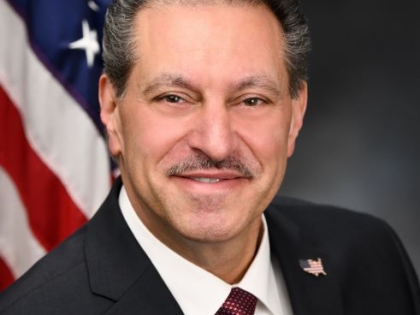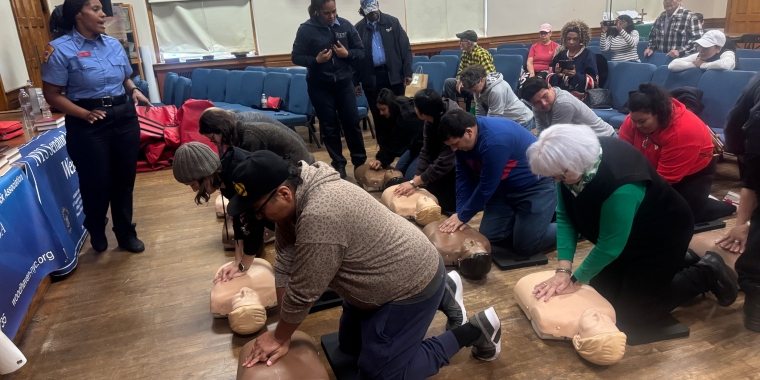
Addabbo highlights new laws going into effect in 2022
Senator Joseph P. Addabbo, Jr.
January 7, 2022
As we ring in the new year, 2022 brings with it several new laws that will go into effect that will impact everyone across the state, and Senator Joseph P. Addabbo, Jr. wants to inform his constituents of these changes.
“Each year new laws go into effect that were voted upon by the state legislature and approved by the Governor. Some begin at the start of the new year, while other laws begin later in the year,” Addabbo explained. “I want to make sure that everyone is aware of the new laws that will start this year that can have an impact on people’s everyday lives from how you take home food from a restaurant, to helping to stop spam robocalls, to how you can gamble in the state, and how we vote.”
- In 2022, two new laws are aimed at making it more difficult for scammers to make automated robocalls to New Yorkers. One of the laws requires telecommunications companies in New York State to proactively block calls that are likely illegitimate. That would include calls from “spoofed” phone numbers that cannot or do not make outgoing calls. A second bill targeting robocalls requires phone providers to use a new type of call authentication system, using cryptography to validate that a call is really coming from the number shown on caller ID displays.
- A bill signed into law on December 23, 2021 will establish a new 988 emergency phone line in New York State to be used alongside 911 as a suicide prevention and mental health crisis hotline system. Users will be able to call or text 988 when experiencing a mental health or substance abuse crisis. Operators will work in tandem with 911 call centers to respond. Federal guidelines already required 988 lines to be in place by July 16, 2022. The New York law will put in place extra training and reporting measures to help those in distress or feeling suicidal.
- Beginning January 1, 2022, restaurants will no longer be able to use polystyrene containers for take-out or give them to customers so they can take home their leftovers. The law was adopted in 2020 and despite supply shortages, the Department of Environmental Conservation (DEC) has set up a system where people can make complaints about businesses not complying with the law. The first violation will cost businesses up to $250. A second will cost businesses up to $500 and/or a third violation up to $1,000. According to the DEC, fines collected will be put into the Environmental Protection Fund. Additionally, the law also bans foam packing peanuts from being used by manufacturers or retailers in the state. Among those who will be affected by the foam packaging ban are caterers, food carts, food trucks, retail food stores, delis, grocery stores, cafeterias, coffee shops, hospitals, adult care facilities, nursing homes, schools and colleges. The state will provide waivers to nonprofits and government agencies — including food pantries — that provide food and meals to the poor.
- This year is also bringing changes to the NYS Paid Family Leave program. New Yorkers who have met the time-worked requirements for the state’s paid family leave can take up to 12 weeks off to care for a new child or sick family member. In 2022, New Yorkers using paid family leave will get 67% of their average weekly wage or up to $1,068.36 a week. New legislation, introduced by Senator Addabbo and signed by Governor Kathy Hochul in November, adds caring for a sick sibling to be recognized under the family leave act. The extension applies to biological, adopted, half-siblings, or step-siblings but won’t take effect until 2023.
- Based on legislation drafted and introduced by Senator Addabbo, nine mobile sports books are on track to be launched in 2022: BetMGM, Caesars Sportsbook, DraftKings Sportsbook, FanDuel Sportsbook, BetRivers, PointsBet, Resorts World, Bally Bet and WynnBET. Experts says these mobile betting apps will be up and running in the middle of January, in time to take bets for the Super Bowl and will provide the state with significant revenue, increased educational funding, jobs and new funding for gaming addiction and youth sports programs.
- To further protect whistleblowers from retaliation from employers, the definition of an employee now includes former employees. The term “retaliation” was also expanded to include actions or threats that would impact a former employee’s employment, current or future. It also includes threats to or contacting immigration. The statute of limitations was also extended to two years. This law will take effect on January 26, 2022.
- According to a new law starting in May 2022, employees must be notified before they are hired if an employer will be electronically monitoring them in any way. Employers will also have to post the notice and give employees an annual notice.
- A new law will criminalize the sale of anonymous “ghost guns,” a term used to describe guns that don’t have serial numbers and are put together in pieces. This lack of identifying information makes it difficult for law enforcement to trace these ghost guns when they are used to commit crimes. Advocates for the New York ghost gun ban said the firearms often end up in the hands of buyers with criminal records or those who would not pass a required federal background check. This new law also requires gunsmiths to register and include serial numbers on any firearm that they assemble.
- In 2022 New York will begin installing speed cameras along highway work zones under a pilot program that will issue automatic speeding tickets to violators. The cameras will take photos of license plates on vehicles exceeding the speed limit in work zones. Tickets will then be mailed to the vehicle owner. A first offense carries a fine of $50, a second ticket within 18 months is $75, and three or more tickets will result in fines of $100. The state will gather data on how much money the cameras save on labor costs compared to using police for speeding enforcement.
- Two bills signed into law by Governor Hochul will increase the number of early voting sites in New York and require faster counting of absentee ballots cast in an election. The Make Voting Easy Act requires each county to designate at least one early voting polling site for every 40,000 registered voters. In counties with fewer than 500,000 registered voters, one early voting site would have to be established for every 30,000 registered voters. The law also increases the number of hours polling sites must be open on weekends and holidays for early voting. The polling sites previously had to be open for at least five hours on those days, while the new law requires the polls to be open for at least eight hours.
- A second voting reform law requires most absentee ballots to be counted in time for unofficial results to be made public on election night.
- A separate law will require the state to establish an online system for voters to track the status of any absentee ballot they submit in an election. The status of the ballot, or any application for a ballot, must be made available on the website of the state or local Board of Elections. The lack of a statewide tracking system became an issue in the 2020 election when a record number of New Yorkers chose to submit absentee ballots during the coronavirus pandemic.
- Another new law will make it a crime to use a fake Covid-19 vaccination card. Violators can be charged with a misdemeanor under the state’s forgery laws. The new law also makes it a felony for anyone to intentionally enter, alter or destroy electronic computer records of Covid-19 vaccinations. It was already against federal law to use a fake Covid-19 vaccination card.
- Private sector businesses in New York will have to offer their employees retirement savings plans starting in 2022. Business owners that don’t already provide their employees with a retirement plan will be required to enroll workers in the state’s Secure Choice Savings Plan. The plan automatically makes payroll deductions into an individual retirement account, or IRA. Employees will be able to opt out of the program at any time.
- A new law will require homeless shelters to provide women with free feminine hygiene products such as sanitary napkins, tampons and panty liners.
- Insurance companies will be prohibited under a new law from using the breed of a family dog to determine the cost of homeowner’s insurance. New York becomes the second state, after Nevada, to enact such a law. Advocates for the law said insurance companies have denied or canceled homeowner insurance for households with certain breeds of dogs. Among the targeted breeds were pit bulls and Rottweilers. A second law relating to pets will require veterinarians to report suspected animal cruelty to authorities.
- By the end of 2021, municipalities had to decide whether they were going to allow recreational marijuana to be sold. Opting out of allowing marijuana to be sold also means those municipalities are also opting out of tax revenue. The Rockefeller Institute of Government created the Marijuana Opt-Out Tracker to monitor municipalities’ decisions.
“There are some big changes for the state that we hope will have a positive impact on our residents, businesses, and the environment,” Addabbo said. “If anyone has any questions about these bills and what they would mean for you, please give my office a call and we can explain these new laws. We look forward to making 2022 a big year for New York State!”
Share this Article or Press Release
Newsroom
Go to Newsroom
